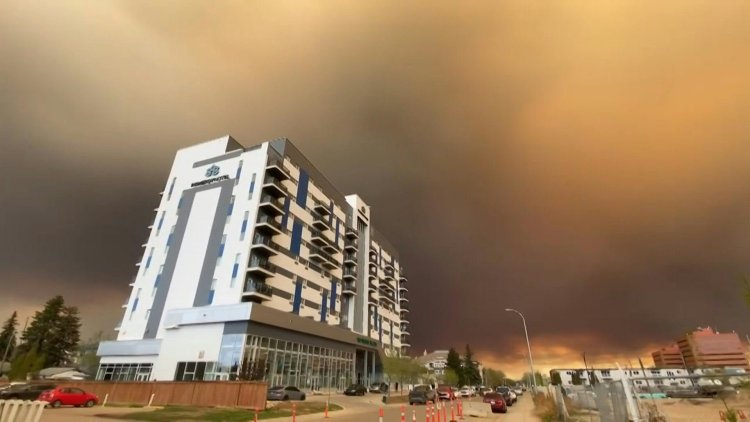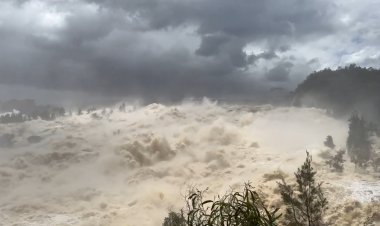Fort McMurray Wildfire Threatens

Thousands of residents of Fort McMurray, a city in Canada's major oil-producing region, fled as an out-of-control wildfire drew near and thick smoke filled the skies.
Shifting winds gusting to 40 kilometers per hour fanned the flames, scorching 9,600 hectares of surrounding forests as it advanced to within 13 kilometers of the city in the western province of Alberta that had been gutted by wildfires in 2016 -- one of the biggest disasters in the nation's history.
Four neighborhoods were ordered to evacuate and by mid-afternoon, a highway south was jammed with cars and trucks fleeing to safety against a backdrop of plumes of dark smoke glowing orange in the distance.
Regional fire chief Jody Butz, however, assured residents that crews were prepared, having cleared brush and erected fire barriers over the winter, and that water bombers were now dropping retardant to slow its advance.
In 2016, the entire city with a population of more than 90,000 was evacuated while production of one million barrels of oil per day -- almost one third of Canada's total output at the time -- stopped.
More than 2,500 homes and businesses were razed, with damage assessed at more than Can$3.7 billion. Thousands of residents never returned to the city.
Authorities have been bracing for another possibly devastating wildfire season, after Canada's worst ever last year that saw flames burning from coast to coast and charring more than 15 million hectares of land.
Dozens of zombie fires sustained by layers of dried peat continued to smolder beneath the surface of the boreal forest through the winter, which was warmer than usual and left a smaller snowpack, while drought has persisted across the region.
Air quality warnings have been issued across Canada and the United States as smoke from the Canadian wildfires wafted as far south as the US state of Oklahoma and over to Quebec province in the east.















